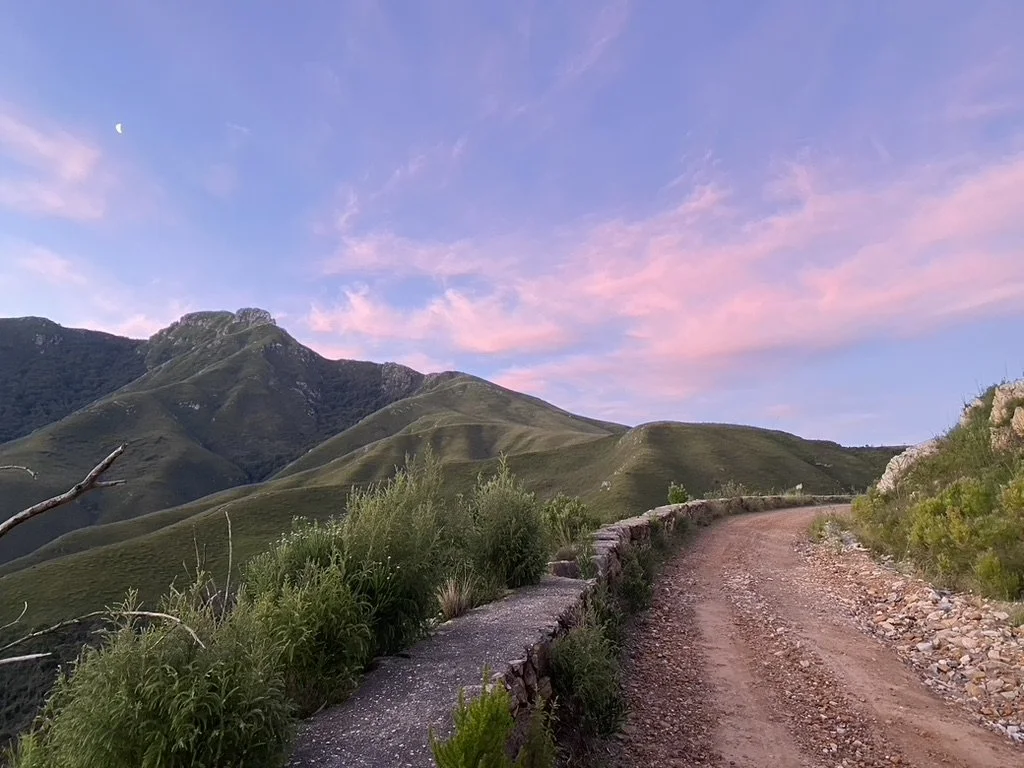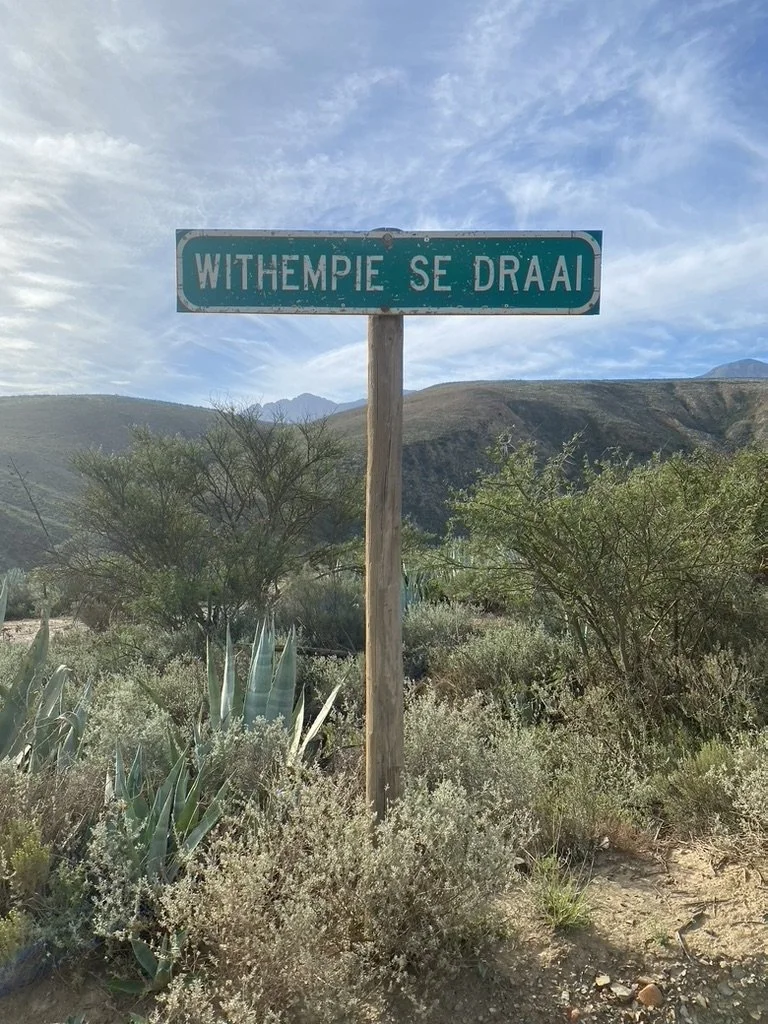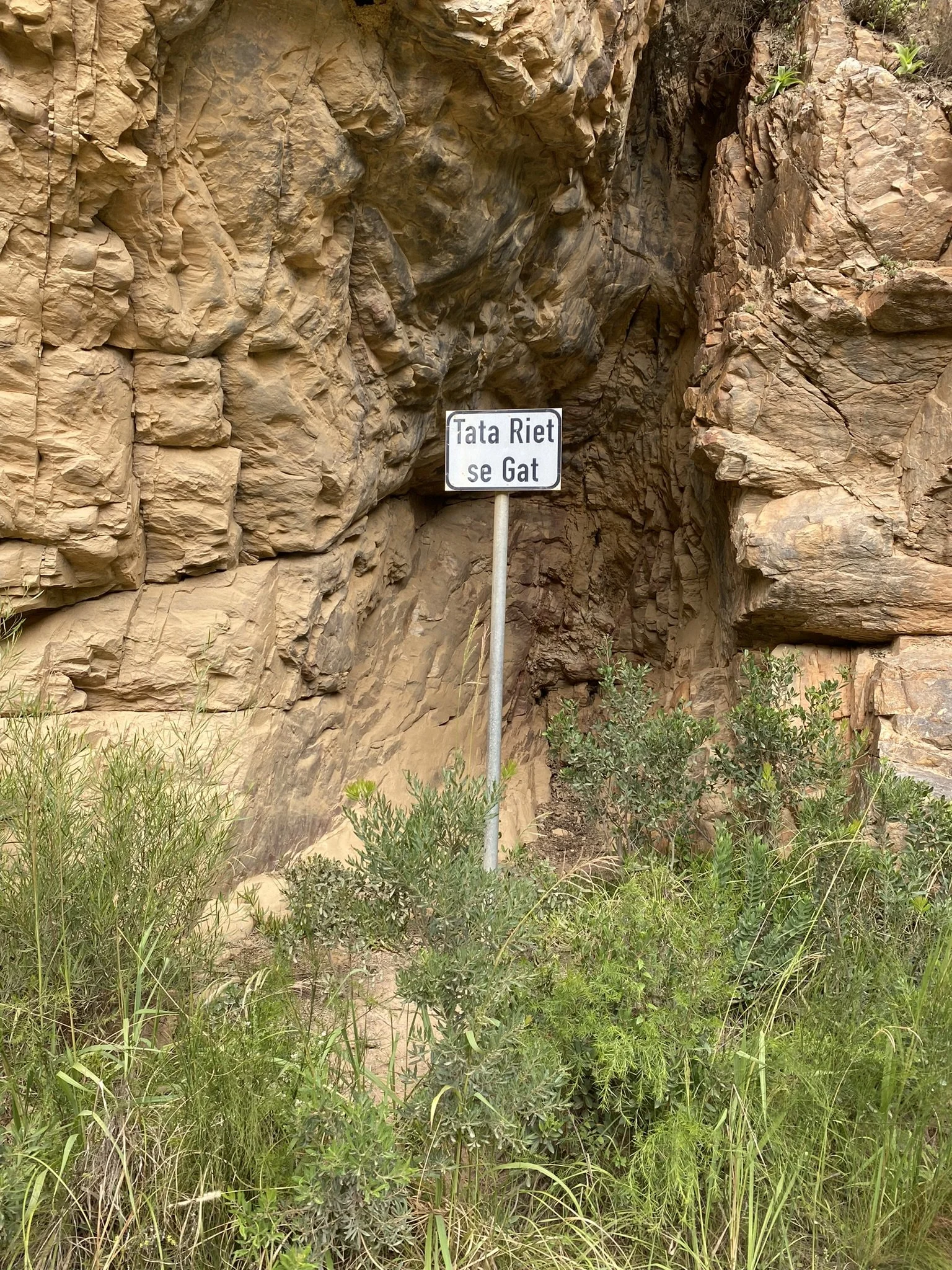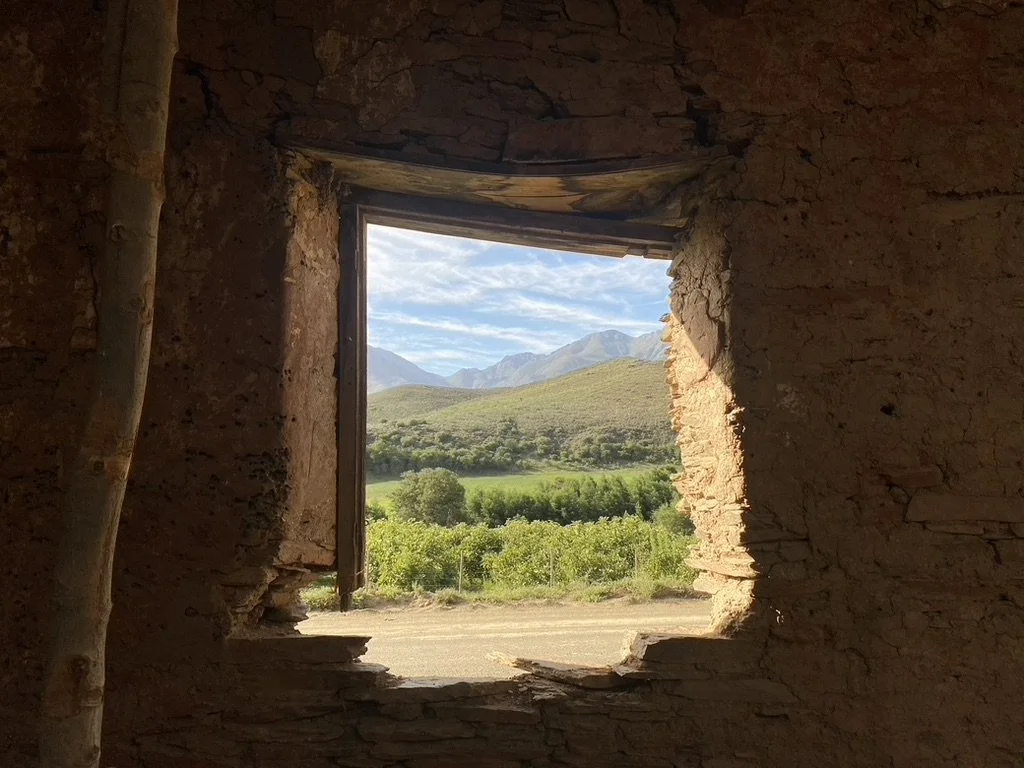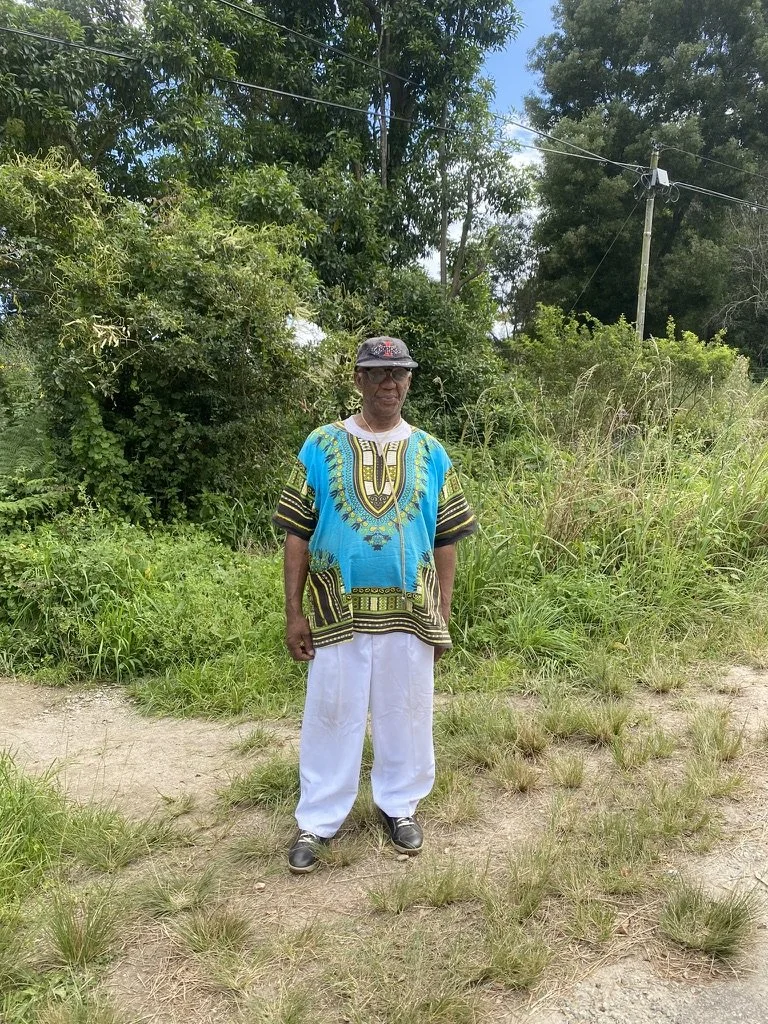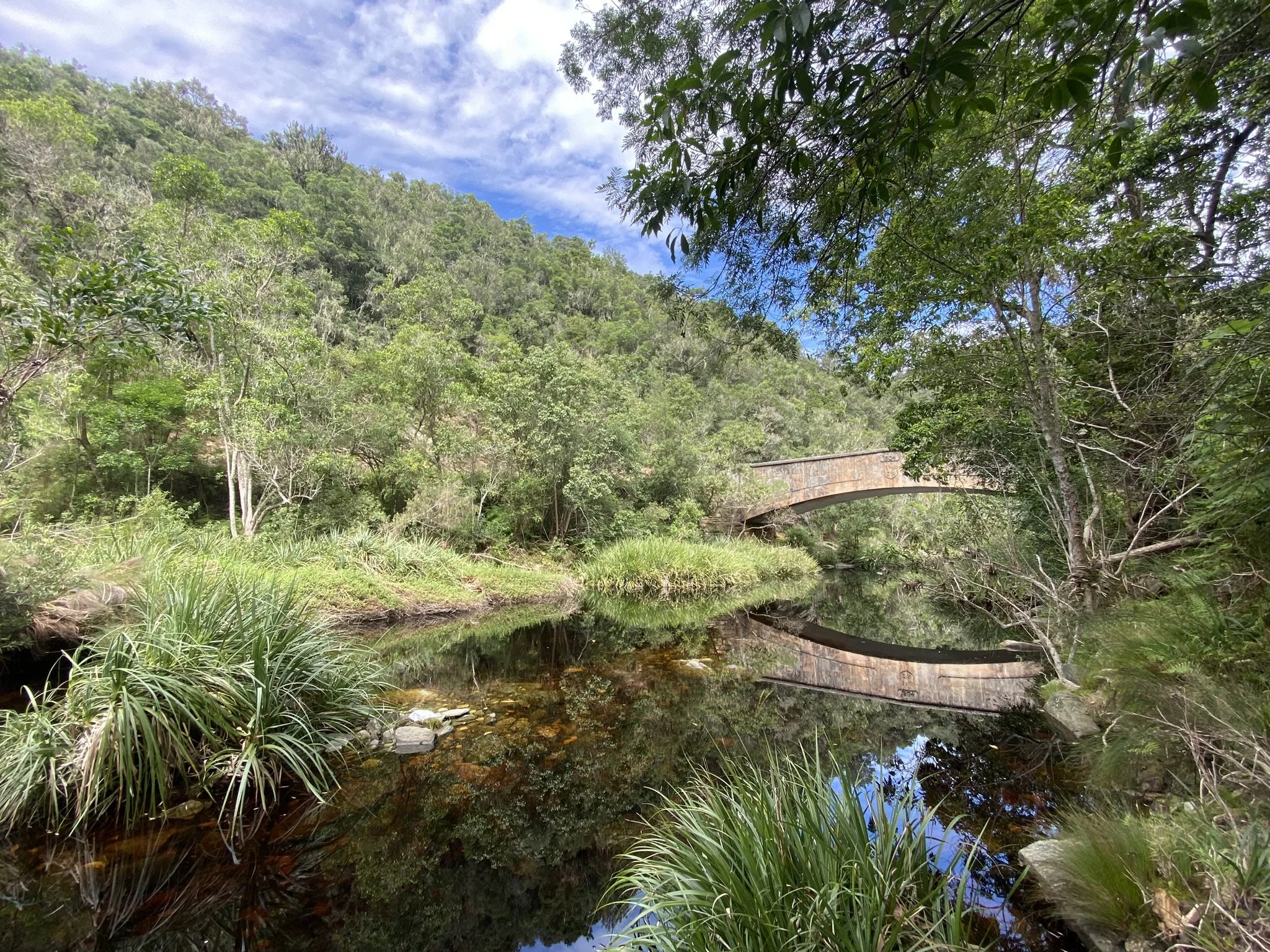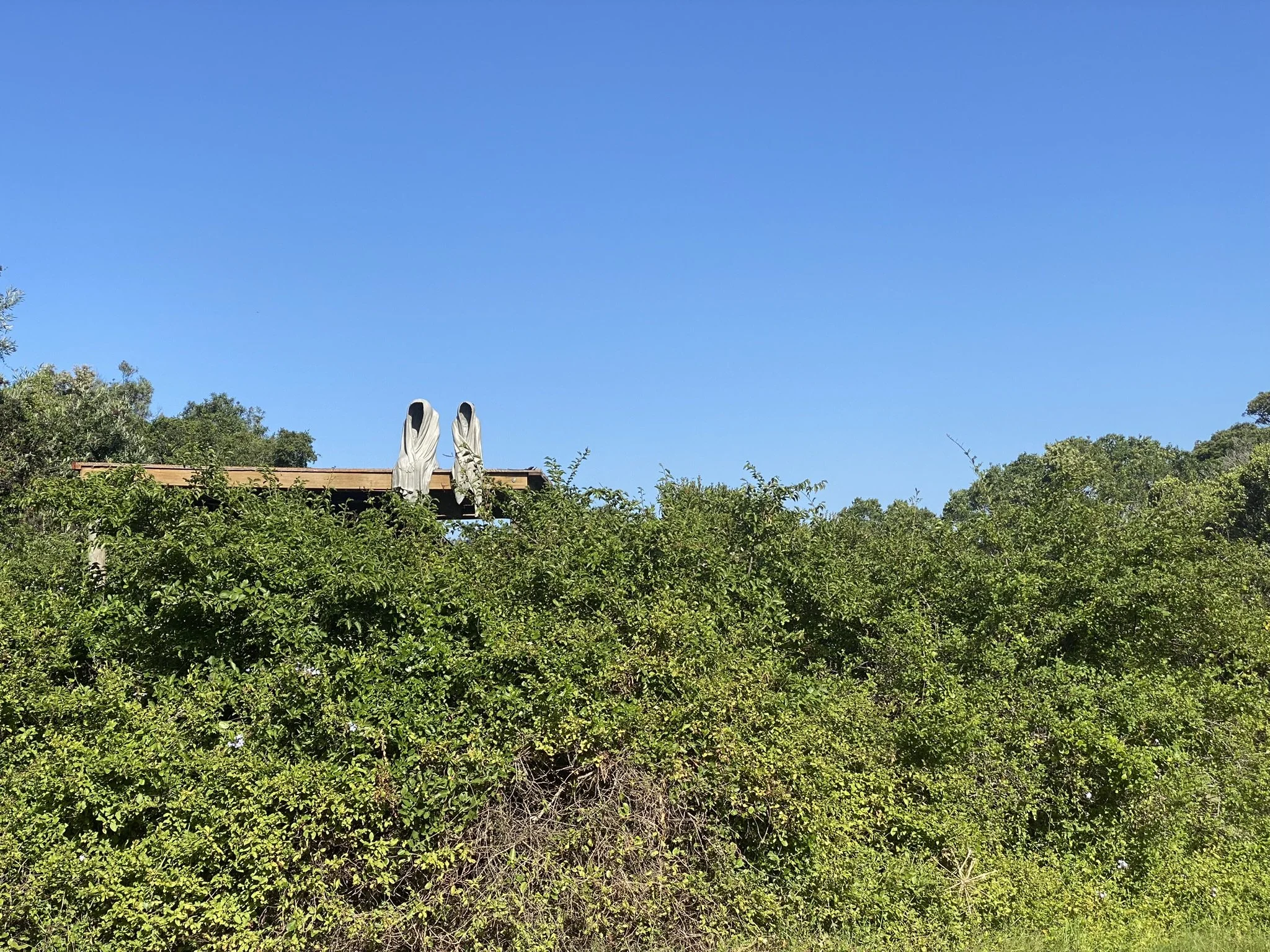perpetual comfort
stefan mostert
20 april 2023
3,250 words
20 minutes
A Southern Cape adventure, filled with mountains, fynbos and a few rogue bees
Packing is probably so difficult for us because in the past – where we are still evolutionary wired to - it must have been quite stressful. The food in the house is gone, the snow had just begun melting down in the valley, and between the comfort of your fire-burning, cinnamon-scented cottage and that valley, there are some fierce beasts that had devoured your neighbor just last weekend. There is no cellphone, GPS, ultralight gear, or even regular peanut butter for sale along the way. Just you, your weapon, the sun, the moon and the stars. Today, we no longer need to strangle bears with our bare hands because now we have Uber Eats, now someone else can trek through the snow. My body doesn’t realize this, so I keep procrastinating packing my bags and bike.
We probably don’t need to worry too much about this overall weakening of humanity’s bravery, but we should certainly be aware of the ultimate cost of this change in our lives today. Our good old perpetual comfort: The built-in algorithm to pursue as much pleasure as possible, while avoiding as much stress as possible.
That’s what has kept us alive until now. The species in which this genetic code was not as deeply embedded have already gone extinct. That’s what Darwin says.
By now, we know that nothing in life is free. So, even though it must have been incredibly difficult and stressful to leave the fireplace on such an icy day, we can be sure that very few people today have experienced anything comparable to what a successful return home would have meant for our ancestors: meat in hand and the hope and gratitude for at least a few more days of survival.
Our brains, as we know, seem to be addicted to dopamine, happy with what they have until something better appears on the horizon. And so, we continue, and before we know it we are taking pictures of ourselves while another new car stands in the driveway, and the cuisine of some unpronounceable country is bubbling on the stove while yet another stream of Californian Red rolls off our tongues. What was once our ancestors’ annual harvest festival is now just Tuesday Evening.
All this philosophizing about my ancestors is not helping me pack my bike. Everything is laid out, but starting to stuff those always-slightly-too-small bags is terribly difficult. It’s the last step. After that, it’s time to leave. So instead, I just sit and ponder some more while hoping my sleeping bag will shrink itself.
Finally my bike is loaded, and I leave Mossel Bay and the coastline, on small farm roads with a tractor kicking up dust clouds over me now and then. Far ahead are the Outeniqua Mountains, with George at their feet, that I’m slowly approaching.
Near the Outeniqua Pass, the last bit of life on my path is the suburb Blanco, just northwest of George. Blanco, like most of its inhabitants, is a fusion of two world cultures that met here at the southern tip of Africa — among many other places — centuries ago. One culture was ambitious, organized, and incredibly hostile. The other was colorful, musical, sociable, and warm. Today, we have Blanco: Organized but not sterile like a typical white middle-class neighborhood. Loose and sociable, but not to the point of falling apart like a typical black township. Just enough of everything.
It seems that everything good and worthwhile in life maintains that delicate balance between chaos and order. That is Blanco, and also good music: We seek order — the predictable rhythm that allows us to relax and tap our feet — but we also seek those moments of change — chaos — that snaps back our attention.
As long as you end where you started — or at least at the same elevation — bicycle touring, as a whole, is also a beautiful dance on the threshold between chaos and order. Half uphill, half downhill. Precisely! Every climb is nail-bitingly chaotic, and every descent is mercifully orderly. You try to master the balance at every moment: If the day was incredibly rough, but you can still sleep in your own tent, then you have struck that balance well. If you end up in a hospital bed, there was just a tad too much chaos on that particular day. Not getting up or moving at all, is entirely too orderly.
The sun glistens low against the white rocks that reflect from George Peak’s green valleys and hills. There is no longer enough daylight to get over these mountains in time. Night riding is enjoyable as long as you know where you will sleep. With my last bit of cell signal, I make the necessary arrangements with Over the Mountain Guesthouse.
There must be a mathematical formula — somewhere, I am sure of it — called the Back Mountain Pass Constant or something like that. It states that for every unit of distance you travel, the slope of the pass increases two times, and the condition of the road deteriorates three times. That is probably why these passes always catch me off guard. No matter how many times you remind yourself to expect the worst, they always exceed your expectations.
With the last bit of deep-orange light over the Little Karoo’s horizon, I finally crest that highest point and descend towards my warm bed for the night. The hostess is busy baking a cake or something, because she is trying to get me into my room very quickly. I obediently cooperate, and as she walks away, she shoos the pastor’s dog back toward the church tower and calls back to me: “Call if you need anything, just not too late.”
The next morning, during breakfast on the grass, with the Swartberg Mountains in the distance, I meet the manager Alida. Friendly and clearly the one who makes guests feel at home. We city folk often assume that everyone we meet in a small town has always only been there. There are certainly some individuals who would only leave their hometown — or even their living room — for an Angus Buchan gathering. But then there is Alida, who tells me about how she and her boys swim in the local mountain pools and about her life when she lived in Colorado. I tell her that I am not always sure if I want to stay in America for the rest of my life, unless that option is in Colorado. What a beautiful place. I see she agrees. We hear the hostess calling for her to come help unload. I must go too.
The afternoon is peaceful on the Kammanassie Trail, passing small farms and hamlets, with the Swartberg and Outeniqua Mountains on either side of me. Painted large on a farmer’s outbuilding:
GOD
FARMS
HERE
But I still only see the same black worker on the tractor. The only thing that has changed in his life over the last 30 years is that it used to be his dad who sat in the dust all day.
In the late afternoon, I enjoy my Bobotie Roosterbrood (a curried grilled sandwich), which Over the Mountain packed in my titanium container — complete with a little flower and a napkin. Now that’s the Klein Karoo!
I push through, and about an hour after sunset, I see the lights of Uniondale, but the town’s famous hitchhiking ghost is nowhere to be seen. She must have realized there’s no room for a ride with me.
Every town has its watering hole, and I’m lucky to find Uniondale’s still open. Behind the bar there’s an old man; on the TV, there’s cricket; and next to me a young local couple — sitting dead silent and staring at the screen. Bobotie is on the menu again, and we all know what they say about eating Bobotie twice a day: Definitely! When I’m halfway through my meal, I give the old man the signal. We had agreed — mutually decided really — that I might also need the Lasagne.
Early in the morning, from my cozy, warm bed, I hear that Uniondale’s streets are wet. There’s wind too. This is going to be one of those long mornings, where every little task takes just a bit longer than necessary, to delay that inevitable moment of cycling-against-the-wind-and-in-the-rain.
Next to my guesthouse is a coffee shop, and I settle in comfortably, peering out at the rain and wind, which I will have to face at some point, while feeling immensely sorry for myself. First World Problems as they say. But ultimately my outlook is exciting: Nearly 100 km south to Knysna, with 70 km of that being the Prince Alfred Pass. According to my map this is South Africa’s — and the pass engineer, Thomas Bain’s — longest pass.
After a full day of pedaling, I spot a small thatched-roof porch hanging peacefully over a green hill. A sign reads “Cloud Cottage,” and everything about it seems like a good idea. The lady showing me the rough-finished place adds — as if it’s a downside — that there’s no electricity and that I’ll need to heat my own water in the ‘donkey’ boiler. Stop! I want to tell her — I already said I’d take it.
With my body clean and my clothes rinsed out, it’s just me, my pen, and a crackling fireplace as the day fades into dusk and dusk into night. There are only a few things that can make me feel this content.
A lovely morning descent takes me to De Vlugt and to the biker rest stop, Angie’s G Spot. The sign on the road reads:
HOT BEER
LOUSY FOOD
BAD SERVICE
TERRIBLE ACCOMMODATION
When dear Angie, moments later, puts a plate of runny scrambled eggs, soggy toast, and a cup of chicory in front of me, I suddenly realize they were serious. To rub salt in my lunchtime wound, a few bored bees attack me on my way out of the Keurbooms Valley! As in any situation where one is suddenly under attack, it takes a moment or two to grasp what’s happening. At first, I think a poor lost bee accidentally flew into my helmet, but then I quickly realize that attacks are coming from all directions and angles.
I ditch the bike and start running down the pass, swinging my sun scarf around my head like a grounded helicopter. I can see bees — curled up in their stinging positions — giving it their all to drive stingers into me, and dying for the colony. Kamikaze pilots.
By the time I finally get rid of the last bee, I’m meters away from my bike down the pass. During the battle, I spotted their nest — right next to the road where my bike still stands. I sprint, grab the handlebars, and keep running uphill.
That’s what makes bike touring so adventurous: one moment, you’re wondering whether Cape Leopards still roam these mountains, and the next, you’re being attacked by a swarm of bees.
I’m not sure how they determined this to be the country’s longest pass — where they start and end that calculation. To me, it feels more like five small passes. Thomas Bain, designed and oversaw the construction of 900 km of mountain passes in a career spanning 40 years. That’s an average of half a kilometer per week. Not too bad — as long as we remember he had them built, he didn’t build them himself. Other hands built them, and these names are not on the Thomas Bain Monument, where I now stand philosophizing about the road.
The chaos and order of bike touring form a rhythm, almost always framed by two markers: the radio tower — always visible at the last moment of your ascent — and the little bridge over the river — almost always present at the last moment of the descent.
When the radio tower is absent, or you have to wade through the river, then you know you’re far from civilization. Bain’s monument lies tucked away near a bridge over one of the Keurbooms River’s tributaries.
Time for caffeine and calories. I take off my shoes and rest my feet in the icy mountain water of the Diepwalle National Park. The invasive conifers suddenly disappeared, replaced once again by fynbos. The whole world consists of only five floral kingdoms, the largest being the Holarctic kingdom, which spans the entire northern hemisphere. The smallest — and richest — is Fynbos. Nine thousand species, two-thirds of which exist only here. It’s quite a special thing.
Further ahead, with the scent of Eucalyptus Trees, I assume I’ve left the national park. I had wondered why there weren’t more of those idyllic cabins marked on my map — I need a place to sleep — but I quickly realize what’s going on when I suddenly ride into the bustling streets of Khayalethu, complete with unpredictable minibus taxis and a lively spaza shop on every corner. Not the kind of streets your average Land Rover would choose for an off-road adventure. But it’s all downhill from here, and before I know it, I roll into Knysna at dusk.
Knysna is one of those places that unfortunately seems to crumble under the weight of its own beauty. Like almost every restaurant with a good view, or sometimes even beautiful people: life is naturally drawn to you, so you don’t have to give back much. People don’t have to be particularly friendly, places don’t have to be especially welcoming, and streets don’t have to be especially clean. Because the lagoon and the sea and The Heads are there, and so people will always return on their own.
My next destination is the Seven Passes Road, Bain’s original connection between Knysna and George. They call it seven passes, but it’s really more like seven ditches. You climb onto the plateau, then drop down to a river seven times, only to climb back up again. So, there’s no radio tower this time, but at least there’s always the river and the little bridge. I’m grateful those oxen weren’t too strong in the 19th century because the gradients on these roads are very reasonable.
Unfortunately, I can’t find a place to dip my feet in the cold water. The bridges are always too high for safe access, and between them, it’s all private land.
I realize how spoiled I am, in the American Southwest, where my family and I live, as there are vast tracts of public land and National Forests. Parts of the planet that belong to no one, yet also to everyone. Free to roam, camp, hunt — whatever it is that sparks your sense of adventure. That, and Colorado, are my favorite things about the United States of America.
That evening, I finally get a chance to pitch my tent at the Peace of Eden Forest Retreat. Cool mountain air and soft green grass speckled with slow moving shadows. A butterfly or a Blue Monkey appears now and then, only to vanish again. The kind of silence that has become almost completely inaccessible to the average city dweller.
It’s interesting to try counting passes while cycling without looking at a map. You think you’ve gone over three, then a sign pops up saying it’s only the first one. People always want to ask and be impressed by how far you ride on your bike, but it’s gravity you’re really fighting. Your starting point doesn’t pull you back; instead, your destination always draws you forward. That’s the biggest difference between touring on a bike versus a Sunday afternoon ride around your neighborhood. On tour, you’re actually going somewhere. There’s at least a little meaning in the calories you burn.
On the second-to-last dip — just before the seventh ‘pass’ — I finally find a place to soak my feet in the water at a bridge over the Swart River. My feet and I savor the deep cold of the fresh mountain water.
A backpackers' lodge in Wilderness is basically the Vatican City of the world religion of Smoking Weed. By the time you get your room key from the red-eyed manager, you can be pretty sure that No Woman, No Cry will be playing for the third time. There’s also always a pool table, and around it, there are always a few local men who look suspiciously like pimps to me with their short-sleeved suits, colorful ties and sneakers. Sometimes even a cane. As far as I can tell, they form part of the Big 6 African Experience for many foreign tourists.
There’s also always a stray cat with a scar or two across its face — signs of its rough past. So later, Kitkat and I sit together, keeping each other warm, with the Wilderness forest and the distant crashing waves as our backdrop.
The next morning — the last of my little tour — I first explore the Sunday Market that has popped up on the lawn of the backpackers. For sale is everything you’d expect: tie-dye, leather goods, a fortune teller, and CBD in every form. The woman at the leather stall tells me that a solar flare is going to hit South Africa this weekend, copper will start melting, and this will finally deal the death blow to our power grid, plunging the country into total darkness. At first, I want to think: You should get out of Wilderness now and then. But instead, I enjoy her conversation, her humility, and the fact that if darkness truly does consume us, I’ll have a great story to tell.
George is just around the corner, and to pass through it I take my preferred way to properly explore urban areas: via the backstreets, of course. Where the sterile white suburbs give way to dusty, music-filled streets, and then the cemeteries, the prisons, and of course the fairgrounds… all with the Outeniqua Mountains as a backdrop. At the fairgrounds gate, I finally find some shelter from the hot late afternoon sun, along with a stone to sit on and enjoy my lunch. Perfect conditions to be mistaken for a homeless person.
With the last bit of twilight, I take on the final stretch of road to Mossel Bay. Night riding is the best kind of riding, and tonight, I know exactly where I’ll be sleeping. Before I know it, I’m alone on a dirt road, in the dark night, in the cold and in the rain…everything that I was always warned against, all at once.
